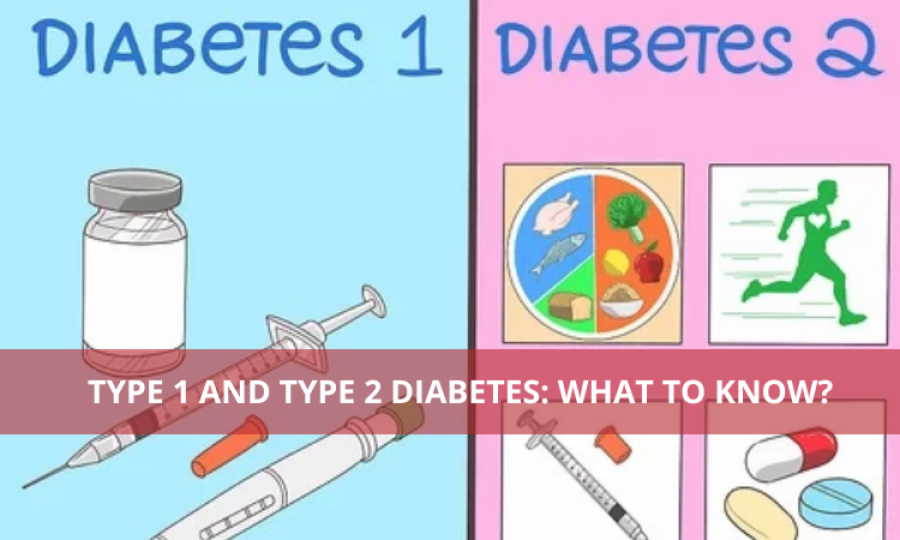Type 1 And Type 2 Diabetes: What To Know?

Diabetes occurs when the body cannot metabolize glucose properly. The diagnosis of the type of diabetes, type 1 or type 2, is made according to the underlying cause that is responsible for the abnormal blood glucose levels.
Causes
In type 1 diabetes, an autoimmune reaction takes place that develops early in life. In it, the body's immune system detects normal cells as foreign invaders. They attack and destroy insulin-producing cells in the pancreas. As a result of this destruction, the body is not able to produce insulin. While the exact reason is not known for this immune reaction, genetic and environmental reasons seem to play a role. However, diet and lifestyle habits do not cause type 1 diabetes.
The cause of type 2 diabetes is insulin resistance. While the body produces insulin, it is not able to use it properly. Researchers are still figuring out the actual cause behind why some people develop resistance while others do not. Although, genetic and environmental factors, along with lifestyle changes do contribute to its development. In this type, the pancreas produces more insulin to try to compensate, which in turn leads to glucose accumulation in the blood as the body cannot effectively use insulin.
Risk Factors
Type 1 diabetes has the following risk factors:
● Family history
● Young age
The risk factors for type 2 diabetes include:
● Prediabetes
● Obesity
● Sedentary lifestyle
● Age more than 45 years
● History of gestational diabetes
● Giving birth to a baby weighing more than 9 pounds
● Certain ethnicities and races
● Polycystic Ovary Syndrome
Signs and Symptoms
The symptoms of both types are similar, but they present differently. Usually, people with type 2 diabetes are asymptomatic for years and their symptoms develop slowly over time. Some type 2 diabetics may find out about their condition only when a complication takes place. On the other hand, type 1 diabetes develops quickly over several weeks and usually develops in childhood or adolescence.
Uncontrolled type 1 and type 2 diabetes can cause:
● Frequent urination
● Increased thirst
● Increased appetite
● Fatigue
● Blurry vision
● Delayed wound healing
● Very dry skin
● Increased susceptibility to infections
● Irritability
● Mood swings
● Unintentional weight loss
● Numbness in hands or feet
Diagnosis
Diabetes may be diagnosed based on several lab tests which measure:
● Hemoglobin A1C
● Fasting blood sugar
● Resting blood sugar
● Glucose tolerance
Prevention
Type 1 diabetes cannot be prevented. It may be possible to decrease the risk of developing type 2 diabetes through the following:
● Maintenance of a moderate weight
● Healthy diet plan
● Increased activity levels
Treatment
Currently, there is no causative treatment for type 1 diabetes. As these people are not able to produce insulin, it must be regularly administered and blood sugar levels should be checked periodically.
It is possible to manage type 2 diabetes with diet and exercise, but some people may require medication to effectively utilize insulin in the body. Monitoring blood glucose levels is vital in this regard too.
Trending
Popular
Over one billion people worldwide struggle with obesity, WHO study ...
-
Health Alert: Dried fruits found to ...
11:47 AM, 2 Mar, 2024 -
Quitting smoking early linked to better ...
09:56 AM, 19 Feb, 2024 -
Medical colleges should prioritize ...
11:03 AM, 16 Feb, 2024 -
JSMU workshop on quality assurance in ...
02:58 PM, 6 Feb, 2024




